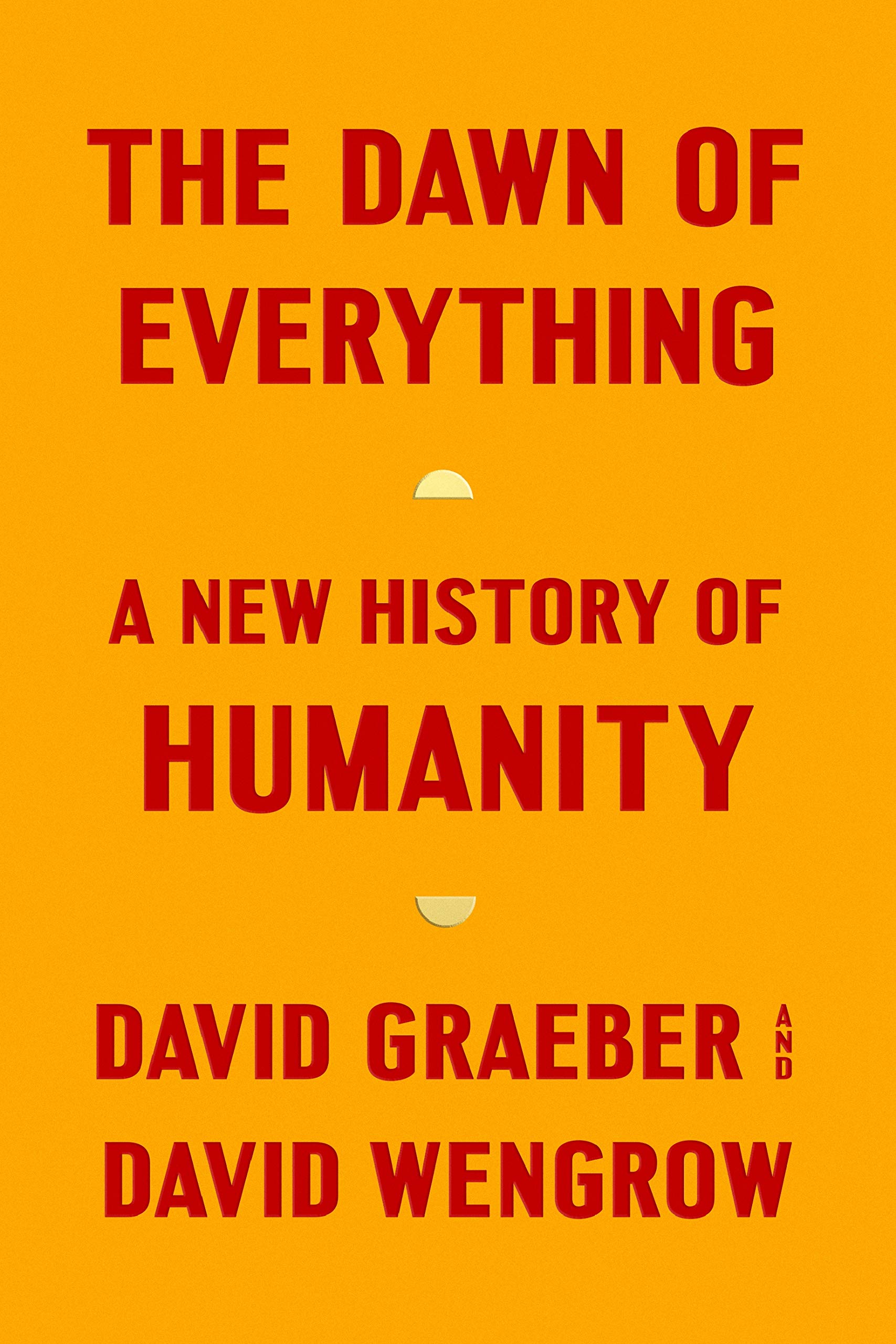Thriveth reviewed The Dawn of Everything by David Graeber
Review of 'The Dawn of Everything' on 'Goodreads'
5 stars
This book gives an extremely refreshing perspective of the history of human societies, including (but importantly not culminating in) our own.
The book is extremely interesting for its thorough presentation of a wide array of human societies along. It rejects the notion often taken by many, that societies throughout the world and throughout history, are merely evolutionary stages culminating in our own. Instead, they make an effort of showing just how remarkably diverse, unpredictable and complex societies through history seem to have been already back in the Central European Paleolithic at the end of the last Ice Age - rather than living in some child-like, innocent state of nature, they show, people seem to have formed large, continent-spanning spheres of kinship and hospitality, and to have displayed a quite surprising flexibility in their societal arrangements, seemingly effortlessly alternating between libertarian and strongly hierarchical arrangements with the change of the seasons.
The main thesis of the book is that our societal arrangements, rather than being driven by material determinism, is driven by conscious decisions made by people with a high level of political knowledge and experience, even dating back to the oldest of times. That humans seem to have developed and abolished both wars, autocracy and other similar phenomena, multiple times thoughout (pre-)history and throughout the world.
Some of these insights were genuinely surprising to me, having grown up with classical views of history. Some hiding in plain sight, such as how we tend to view some eras in history as important, and brush off others as "dark ages" or mere intermissions between the good stuff, and how this reflects more about our own view of what is important than anything else. How we tend to see e.g. the advent of agriculture as a kind of point of no return which changed the way Humans arranged themselves forever, while in reality, agriculture had multiple false starts, seemed to be a mere side hustle for humanity for millennia, and how some societies were even actively abandoning it in favor of foraging, seemingly not liking the feeling of confinement and dedication to one particular source of food, that comes with e.g. grain farming.
Or how we tend to tell the story of how the increased complexity of urban life must automatically give rise to more authoritarian forms of society in order to avoide chaos and collapse, while the archeological data - at least in the authores' interpretation - seem to point in the opposite direction: That centuries or even millennia seemed to pass between the appearance of the first city states, and the first signs of large scale centralized power, and how institutions like monarchy seems to have arisen, not as a necessary result of this urben lifestyle, but rather in small groups of oppositional people surrounding these city states, and then later having spread into the city states themselves.
Another really interesting claim of theirs is the influence of native american intellectuals (I love how they insist on using dignified language like that about people who are too often written off as "chieftains", "medicine men" and other infantilizing language) on the european ideas of Enlightenment. As the writer put it, "the present day European would probably recognize more of their world view in that of the 17th century Wendat than of the 16th century French, with their complete rejection of ideas such as personal freedom and equality". This was another one of those shifts of perspective that shouldn't be almost dizzying, but certainly was - but which seems very hard to reject once it's sunk in.
The emphasis on the rejection of materialist historical determinism can be a bit of a hard pill to swallow for a classick Marxist like myself. It certainly challenges the classical Marxian narrative of how Human societies have moved from "primitive communism" over evolutionary stages through slave society, feudalism, to modern day capitalism as a result of soulless, almost mechanical forces of History. But I think it is a good kind of challenge: It reminds us the dialectic nature of Historical Materialism which Marx and Engels emphasized, but many of their followers tend to forget: That humans shape their own history and make their own choices, but do not get to choose the circumstances and conditions in which those choices have to be made. It does not deny the influence of material conditions on the greater strides of history, but demands that we take a more complex, less simplistic view on the relation between humans and their surroundings. It is the kind of challenge to Marxist philosophy that Einstein was to Newton, not the kind of challenge that the Church was to Darwin.

